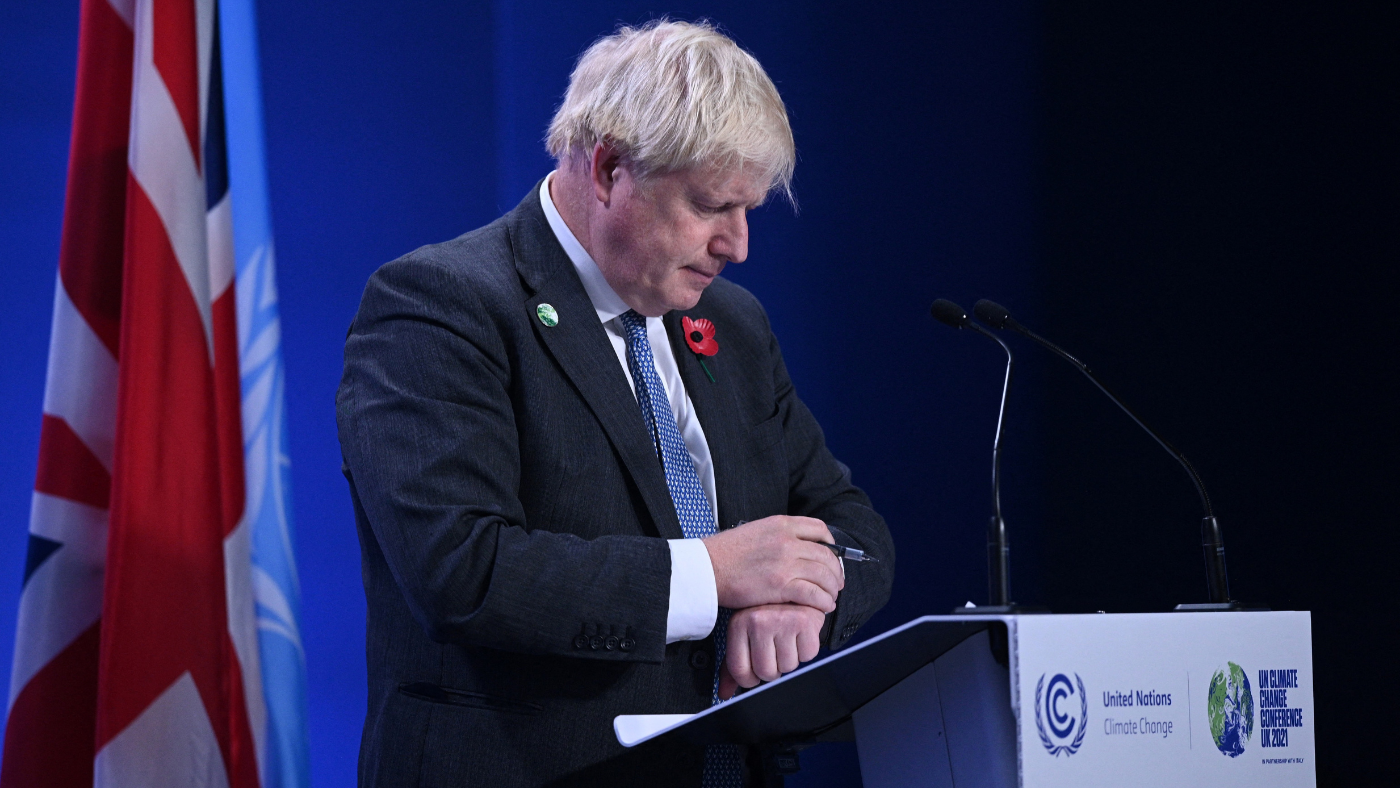When will we know if Cop26 has been a success?
Draft agreement lays out key dates for necessary action on climate change

A free daily email with the biggest news stories of the day – and the best features from TheWeek.com
You are now subscribed
Your newsletter sign-up was successful
Boris Johnson is urging countries to “pull out all the stops” at Cop26 in order to limit global warming.
After world leaders’ opening scenes at the UN climate conference last week, negotiators are “doing the hard yards… to turn promises into action on climate change”, said the prime minister.
Delegates are “facing a frantic second act”, said ITV, fraught with “objections, dense technical detail and back-pedalling” as they work to reach an agreement that all 197 countries will sign by the end of this week.
The Week
Escape your echo chamber. Get the facts behind the news, plus analysis from multiple perspectives.

Sign up for The Week's Free Newsletters
From our morning news briefing to a weekly Good News Newsletter, get the best of The Week delivered directly to your inbox.
From our morning news briefing to a weekly Good News Newsletter, get the best of The Week delivered directly to your inbox.
Historically, a final agreement, known as a cover decision, is typically reached “in the wee hours of the final session”, said Christian Downie, associate professor at the Australian National University, for The Conversation. Now with three days until the end of the Glasgow summit, a first draft has been published.
The seven-page document focuses on how countries will mitigate climate change, how they will adapt to its effects, and how the costs of doing so will be distributed between nations. It also lays out some of the deadlines by which milestone commitments need to be made.
Without “stronger targets for 2030”, there’s “zero chance the world will hold the rise in global temperatures to 2C”, said Downie. As such, “perhaps the most important part” of the draft cover decision is the agreement on countries’ carbon-cutting plans, said the BBC’s environmental correspondent Matt McGrath.
The document calls on countries to “revisit and strengthen the 2030 targets” by the end of 2022, he explained, in order to keep the global temperature rise to no more than 1.5C by the end of the century.
A free daily email with the biggest news stories of the day – and the best features from TheWeek.com
“It will be interesting to see how countries such as China, India, Brazil and Saudi Arabia respond to this request,” said McGrath, given they are among the world’s worst offenders for global carbon emissions.
The agreement recognises that keeping temperatures to no more than a 1.5C rise by 2100 means emissions need to be cut “by a whopping 45% by 2030 from 2010 levels” and net zero must be achieved by the mid-century, said ITV.
Finance is an ongoing topic of tension, but the draft agreement will provide “some comfort for developing countries”, said McGrath. The document states that the current provision of climate finance for poorer nations is insufficient, and stresses the importance of achieving the previously promised $100bn a year in climate funding for these countries by 2025.
The agreement also calls for an acceleration in phasing out coal and subsidies for fossil fuels, but “no firm dates or targets” are outlined in this draft, McGrath continued. “Campaigners will welcome the inclusion and will hope it survives into the final text.”
A “series of side deals” were also announced in the first week of the conference, said the BBC. 2030 has been pinpointed as a critical deadline, with more than 100 world leaders promising to end and reverse deforestation by the end of the century, and the US and EU pledging to cut methane emissions by 30% on 2020 levels by the same date. The focus on methane emissions “gives real hope” that attention is finally being paid to “the massive threat” of greenhouse gases, said McGrath.
If nations, corporations and financiers were to stick to the commitments made in the first days of the conference, the Independent Energy Agency believes they could hold the rise in temperature to 1.8C by 2100. That is as long as the commitments are met on time and in full, along with all commitments that have previously been made, which is “hard to imagine”, said ITV.
The success of Cop26 will depend on addressing “the credibility gap” between what is said and what is done, said the broadcaster. To do so, countries will need to be held accountable for delivering the promises made at the conference, which could mean “bringing them back to the table as early as 2023”.
Assessing what’s been achieved “won’t be easy”, and there won’t be an “obvious big win” as at previous summits. “If not success”, hope might be a realistic outcome, said ITV.
Julia O'Driscoll is the engagement editor. She covers UK and world news, as well as writing lifestyle and travel features. She regularly appears on “The Week Unwrapped” podcast, and hosted The Week's short-form documentary podcast, “The Overview”. Julia was previously the content and social media editor at sustainability consultancy Eco-Age, where she interviewed prominent voices in sustainable fashion and climate movements. She has a master's in liberal arts from Bristol University, and spent a year studying at Charles University in Prague.